[Guide] 12 Ways to Choose the Right Keywords for SEO

I have a bit of a love/hate relationship with keywords:
- On the one hand, they've earned a bit of a bad wrap over the years. People stuffing them into content use keywords to create crappy robotic-sounding content. I hate having to wrap content around specific keyword phrases, making sure to include them when everyone knows what I'm talking about, just because otherwise, the not-quite-all-knowing robots won't judge my content appropriately. I hate spending hours every week digging through keyword planners and research tools to find synonymous variants that maybe some other people haven't thought up to get a tiny edge in the SERPs (search engine result pages). I hate how reliant the internet is on keywords over an informative discussion.
- On the other hand, I love them. I love finding a new keyword or keyword combination that makes me think about a subject in a way I didn't consider. I love being able to subtly change a few words here and there and see a tangible boost in organic search traffic. I also love stumbling across a relatively un-tapped topic with loads of search traffic and barely any competition, quickly earning the top spot and loads of new visitors.
Like I said, love/hate.
I'm probably on the lower end of people who care about keywords from all of the other marketers on the web. I often don't put a crazy amount of effort into optimizing my content for specific search queries.
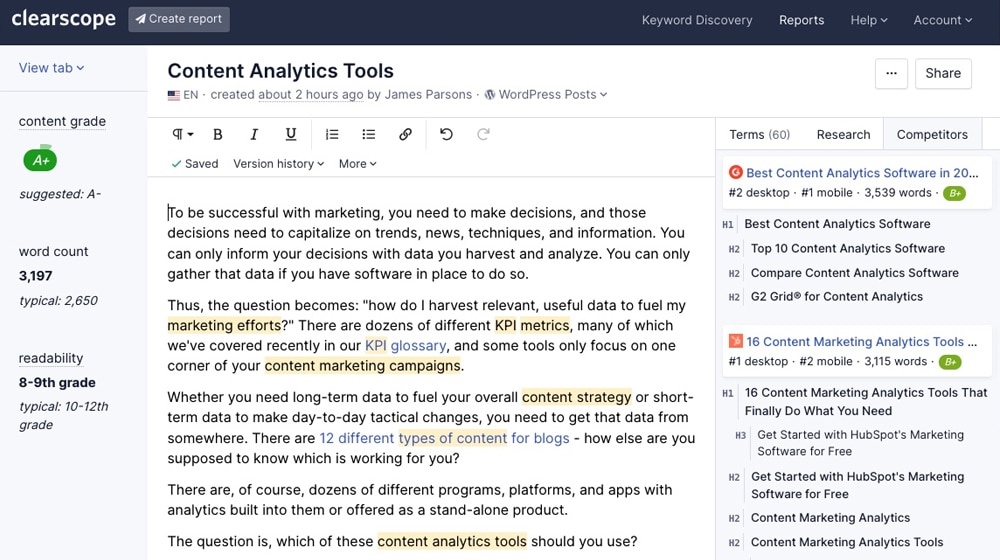
More often, I use tools to help me with it, which I figure is the best way to do it:
My content strategy might look something like this:
- Use SEO keyword research tools to find broad topic ideas to write about.
- Write your content to be informative and helpful without worrying about keywords.
- Lightly add and optimize for keywords in the post before publishing.
That way, your research starts the keyword research process, and keywords are there for search engine optimization, but they don't inhibit the writing process. It works out!
The process, either way, still starts in the same place.
There are many different ways to choose keywords, so I thought I'd give you a rundown today. I may not be the leading authority on keyword data – but I've become very effective at building upon the foundation set down by others and minimizing the amount of non-performing content on my client's websites.
Thus, I've identified a dozen different paths to choose the right keywords.
1: Manual Brainstorming and Keyword Qualification
The first and easiest way to generate keyword ideas is just sitting down and thinking about them. Consider your products. Consider what searchers might be interested in about your product. You sell pet food; think about what kinds of pets, whether the food is organic, whether it has filler, etc., and then spin each idea into a keyword. If the concept is too broad for a single keyword, break the idea down further.
Then, qualify your keyword ideas. You want target keywords with high search volume but not so much competition that it's impossible to rank. You can estimate the search volume of a keyword, judge competition using tools or your search analysis, and so on.
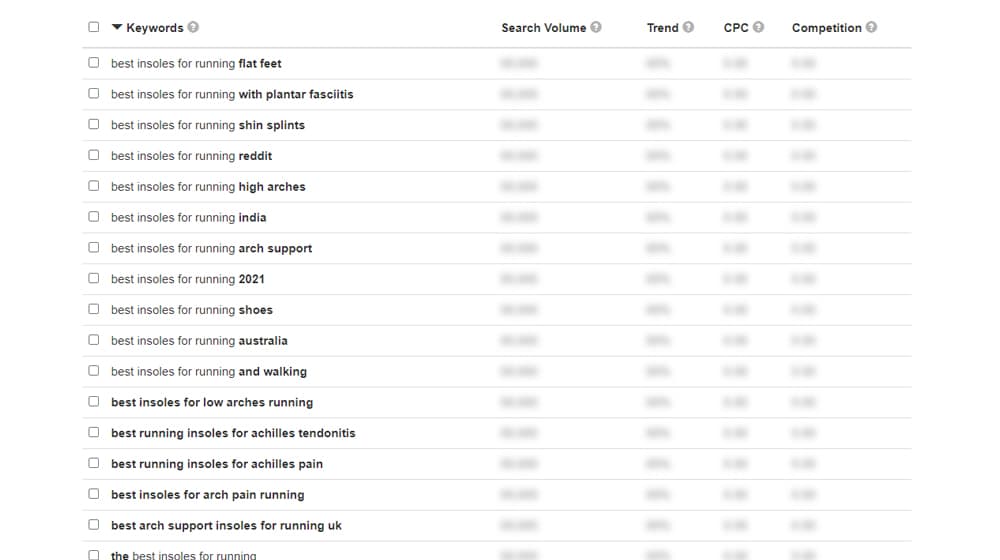
Some keyword ideas may be impossible to rank for, but you should write them anyway, simply because it would be weird if your site didn't have a page covering the subject. Similarly, some long-tail keywords may be too specific or niche to attract a reasonable amount of search volume.
2: Identifying Target Audience Feedback and Questions
One of the best sources of topic ideas is your audience and your customers. Of course, this only works if you have an audience. If you don't, you'll need to identify competitors and look at what their audience is saying.
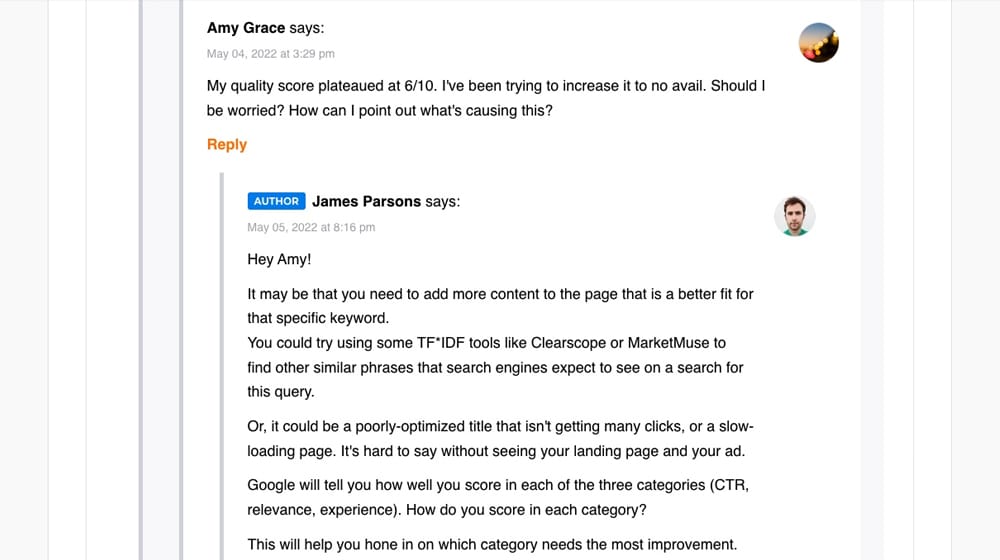
Sources for this information include:
- People who send you emails asking you questions and the questions they ask.
- People who leave blog comments with questions.
- People in your industry that ask questions on Q&A sites like Quora.
- People who ask questions of you or your peers on social media, particularly on Twitter.
- Niche web forums (yes, they still exist) or Reddit subs that might have relevant discussions to watch.
- Targeted surveys you send to your audience via your mailing list or displayed on your site as a pop-up.
There are any number of sources of information to tap if you know where to look. The chances are small that all of this will directly translate into SEO keywords because keywords aren't how people communicate. You'll need to convert a plain English question into a keyword. Still, it gets you most of the way there.
3: Using Basic Keyword Suggestion Tools
Keyword research is one of those tasks everyone serious about a blog will need to dig into, sooner or later. Then, it makes sense that many different companies have made their apps for keyword research. Some are tertiary or use odd methods for looking up a list of keywords, but I'll cover those later. Many of the free tools are pretty "standard," though, and cover the primary data sources, like PPC and data from Google Ads. Other paid tools will estimate the keyword search volume and organic traffic potential, keyword difficulty, and how many keywords those web pages rank for.
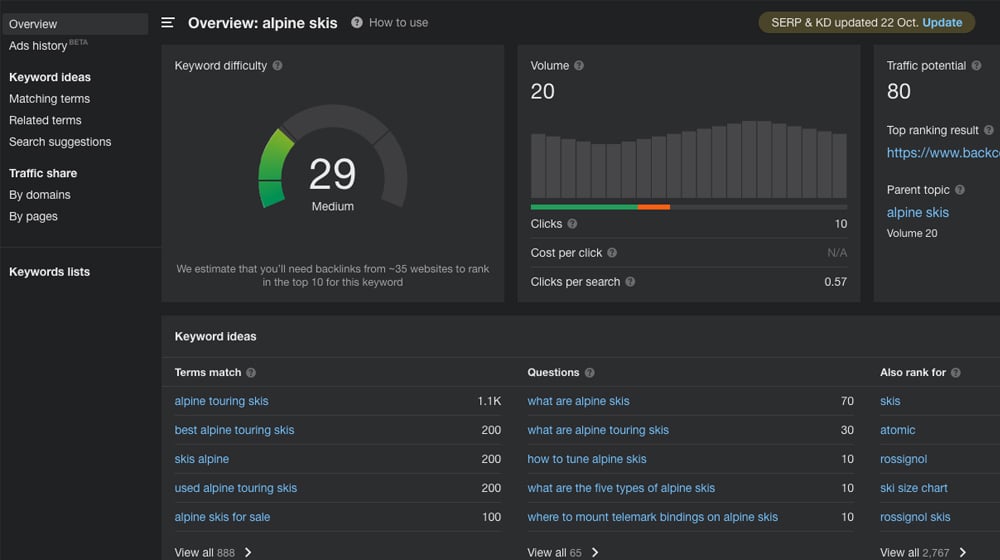
Some good SEO tools you can use for keyword research are:
- Ahrefs
- Semrush
- Ubersuggest
- Moz
- Wordstream's Free Keyword Tool
- Google's Keyword Planner
- Keywordtool.io
- KeywordSheeter
- Keyword Surfer
- Keyworddit
I spend most of my time using Ahrefs, and it has served me well so far. Still, I recommend using many different tools to build an initial ideas document, which you can then filter later.
4: Pulling Data from Search Suggestions
Google wants to help people with their searching, so when you start typing anything into their search box, they pop up a list of commonly-typed questions and auto-complete text to finish typing for you. It can help you specify what you're looking for, it can give you ideas for what you might want to find (if you aren't sure of the specific terms), and it can give you further ideas for more exploration.
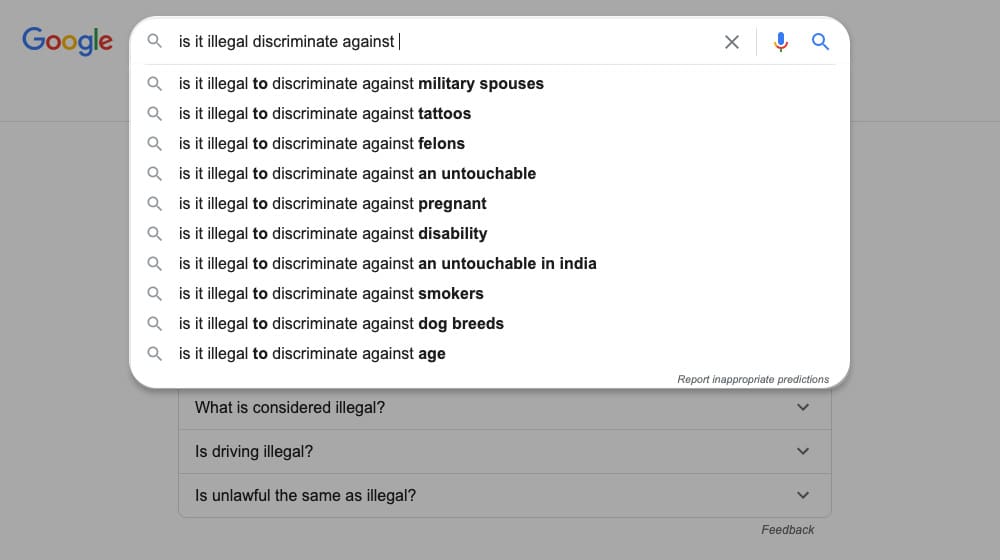
On top of that, on the first page of your search results page, Google often has a "people also searched for" box, a box of questions related to the topic, and additional information relevant to you.
In Google's index, all of these are powered by indexed relationship content between related keywords and key phrases. They're all related, and they're all, at minimum, something that someone, somewhere, searched for. That makes it an excellent source of potential keyword data you can use to write more content on those subjects, which is pre-qualified because Google would only show it to you if people used it in the first place.
5: Mimicking Competitor High-Performing Content
Another excellent source of keyword information is competitor content. Your competition is doing just as much searching for SEO keywords as you are, but they might have a larger audience, a budget for better tools, or use methods you don't know. So, why not figure out what high ranking articles are doing, and do it too?
I like the "anything you can do; I can do better" philosophy. You may have written a vast, detailed piece of content on a subject, but there's always room for improvement, and I'll do the same thing you did but better.
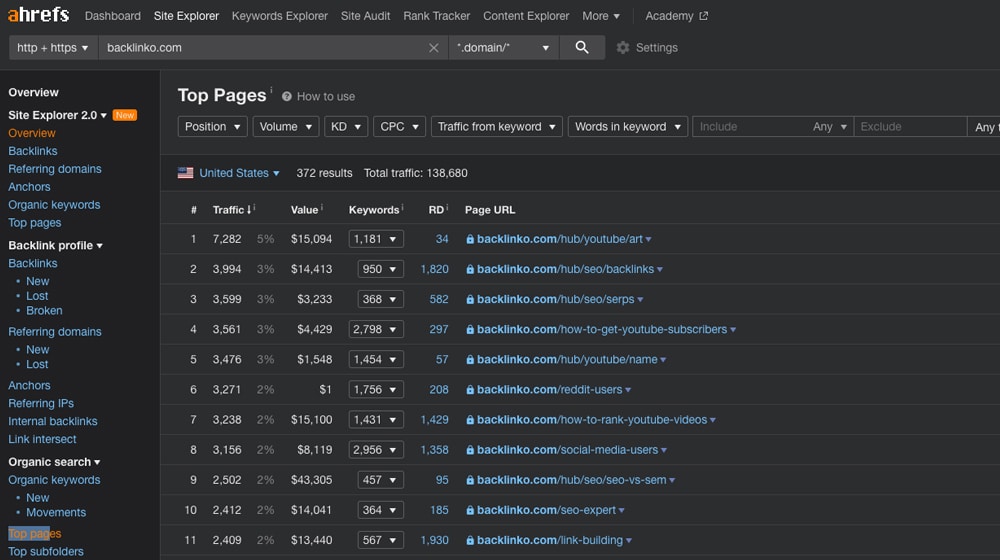
Identifying the top-performing competitive keywords that websites are using isn't very challenging. However, there's only so much information you can access without some espionage or someone operating on the inside. Check out this guide for more details:
6: TF*IDF Tool Keyword Suggestions
The TF*IDF algorithm calculates the semantic index of every individual word in a post compared to all information on the internet. It's similar to how search engines weigh your article's words; the more familiar they are, the more likely they are relevant to the subject of your content.
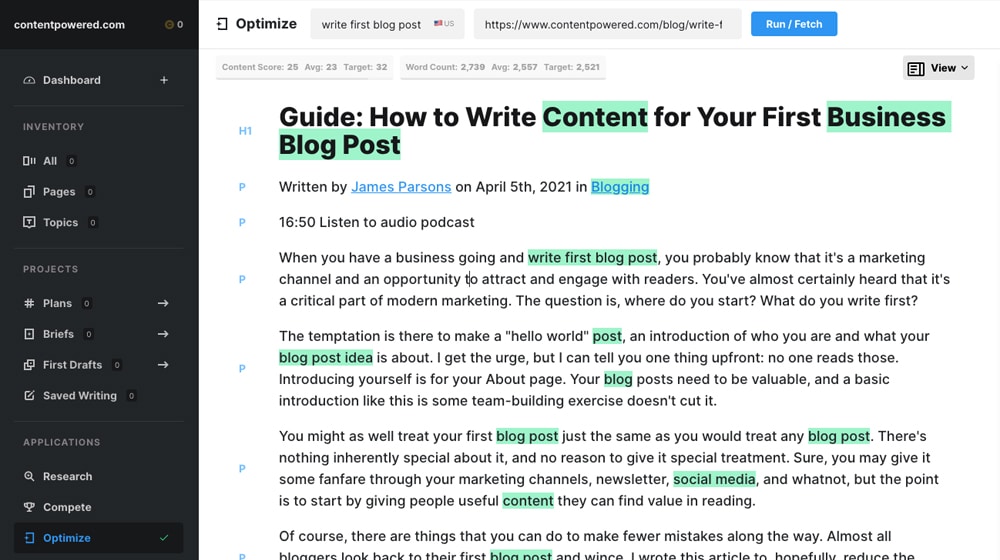
You can read a full breakdown of the algorithm and its meaning here:
Google is far more sophisticated now than it used to be, so the TF*IDF algorithm isn't the secret weapon many marketers make it out to be. However, some tools still use it as the foundation of their keyword suggestions. I love Clearscope as one such tool, for example. You can get a lot of helpful information from these tools, so I highly recommend them.
7: Identifying Buyer and Search Intent Keywords
There are many different kinds of keywords; did you know that? For example, what's the difference between:
- How to dye shoes red
- Red shoes for sale
One of them is an informational/instructional keyword, focused on the user wanting instructions on how to tint their shoes. They aren't looking to buy shoes; they're looking for instructions to alter shoes they already have. You might convince them to buy a shoe dying kit, but you'd be fighting an uphill battle, and you'd have to be convincing.
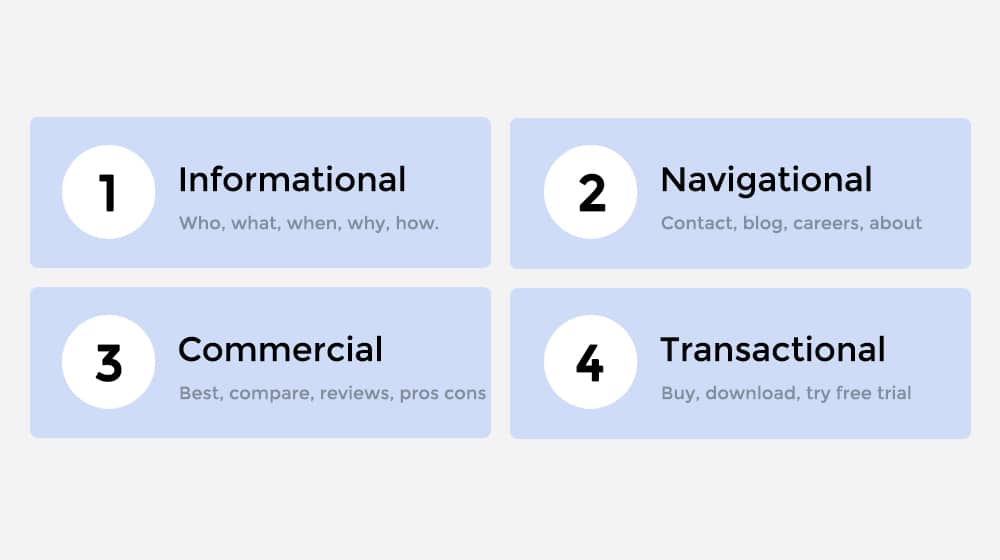
The other is a commercial/buyer intent keyword. The user doesn't want to DIY the color of their shoes; they want to buy red shoes. It's much more directly beneficial to sales and conversion rates but likely less helpful from a general digital marketing and top-of-funnel standpoint.
Identifying buyer intent keywords can be an advantageous technique to learn. They're often some of the best keywords to target from a pure CRO standpoint.
8: Ask Customers What They Want to See
Earlier in this article, I mentioned that one way to get topic ideas and keyword information is to solicit feedback from your users. I'm repeating it because sometimes the best thing you can do is ask. Surveys can be an excellent way to get feedback about everything from site design to potential rebranding to product development via a minimum viable product.

If you're going to send out surveys or ask people for feedback and ideas directly, you need to keep it short. Remember, the lower the barrier to entry for answering, the more people will answer. One single question, or up to three at most, is best for simple email questions or pop-up surveys. Anything longer should be opt-in or somehow incentivized.
9: Set Goals and Work Backwards
Another way to think about keywords is by working backward from your goals.
Take the pet food example above. You start with the core concept that you want to sell pet food. So, think about what people who are actively shopping for pet food need to be convinced to buy yours over a competing product, and identify the keywords that would lead them to that choice.
Then, take a step further back. What keywords would someone need to be convinced to look for your pet food? What topics would they need to be convinced to buy pet food (in general)?
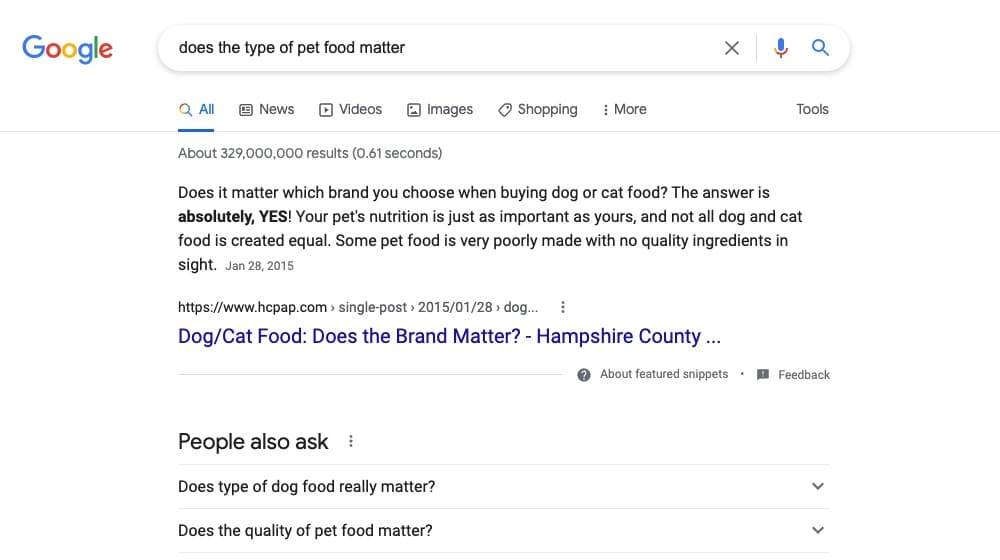
Okay, that one breaks down a bit because pet food isn't optional for pet owners and isn't relevant for non-owners. Still, you get the idea.
10: Audit and Redo Old Content
Once you've been running your blog for long enough, you'll have covered most of the bases, and your keyword research will get increasingly more difficult.
One technique you can use is looking back. Examine your old content and perform a content audit to see how it's working:
Sometimes, you'll have used good keywords on mediocre content, and it has simply faded away over time. But, those keywords are good, and if you could capitalize on them with better content, maybe they would perform much better for you.
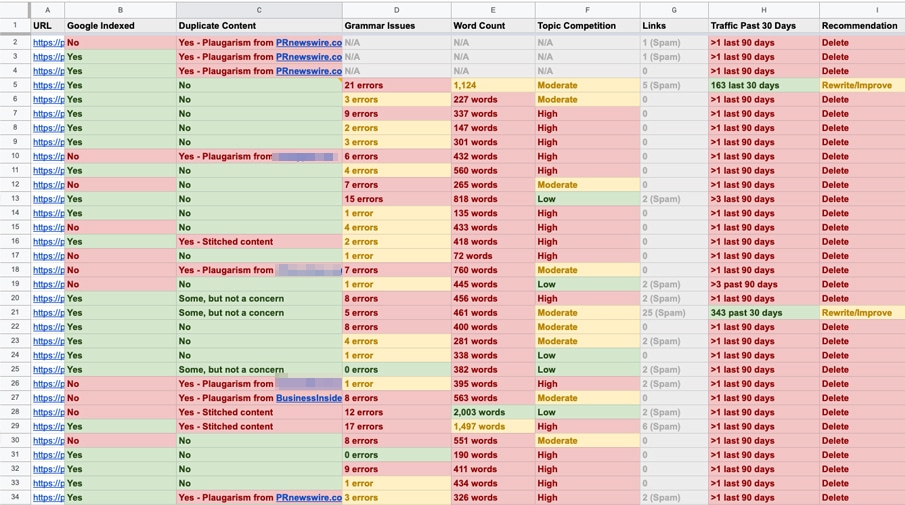
So, revitalize your old content. Scrap it and redo it, rewrite it, fluff it up, update it, polish it; whatever you do, republish it under the same URL if possible, so it maintains any old value and backlinks but has more power to attract new visitors and potential customers.
11: Make Keyword Variations Based on User Journey Stage
Keywords are very modular. You can take a core keyword, a buyer persona, and a stage in your funnel and combine them to create numerous spin-off keywords.
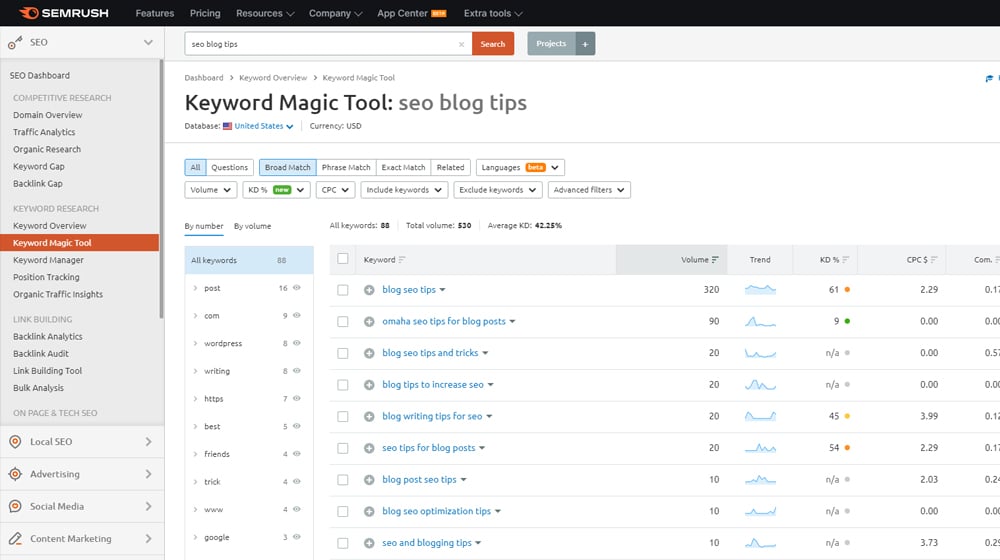
The piece of content you write aimed at people at the top of the funnel will be different from the content you write on the same topic aimed at selling to people at the bottom of the funnel. Think of it as modifiers.
12: Create Direct Response Content
Another technique you can use doesn't rely on keywords as it does the social interactions between brands. Identify top-performing content your competitors have created and create a direct response to it. If they say that X is good, write an article on why X is terrible (even if you agree it's good; you can argue why it might be bad but conclude that it's still good regardless). You can't do this with everything, but it can be a pretty good SEO strategy when the opportunity arises.
What's your favorite way to find valuable new keywords? Let me know in the comments!










Comments